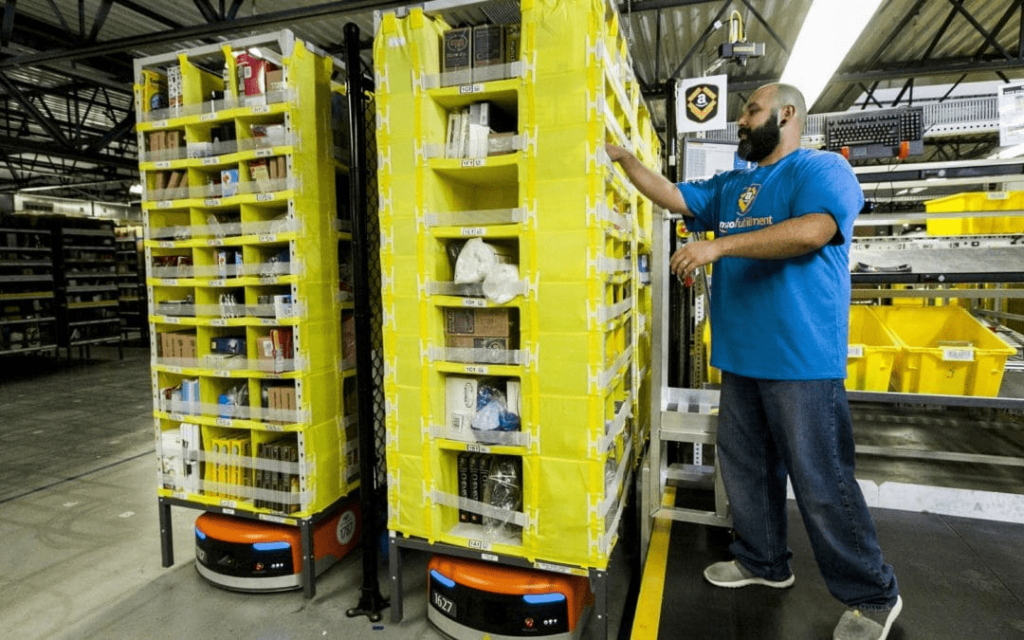
Does a recent court case involving Amazon signal a shift in the definition of a “seller” in today’s ecommerce landscape, the way the burden of liability is applied in online marketplaces—and even the viability of the marketplace model?
Note: This article does not contain legal advice or analysis, and should not be construed as such.
The broken leash that broke a precedent
In January 2015, Heather Oberdorf of Milton, PA, went for a walk with her dog. The dog’s leash, which Oberdorf had purchased from a third-party seller on Amazon, broke suddenly, hitting her in the face and leaving her blinded in her left eye.
Oberdorf attempted to contact the seller of the item, known as the Furry Gang. Unable to reach the seller, she filed suit against Amazon in June 2015 in a federal court in Pennsylvania, citing claims of liability, negligence, and misrepresentation. Although that court sided with Amazon, Oberdorf appealed to the Third Circuit.
A three-judge panel determined in a 2-1 decision that Amazon may be deemed the “seller” in the transaction—and could thus be held liable under state law for sales on its marketplace.
Why the Oberdorf decision is significant
To understand why the court’s decision in Oberdorf v. Amazon may turn out to be a landmark case, it’s helpful to first understand how online marketplaces like Amazon have so far been protected from liability for the products sold by the users of those marketplaces—and how Oberdorf may have changed that.
For most of the past two-plus decades, a part of the 1996 Communications Decency Act (CDA), called Section 230, has shielded companies from liability for publishing what third parties say on their sites. According to Section 230:
“No provider or user of an interactive computer service shall be treated as the publisher or speaker of any information provided by another information content provider.”
To date, Section 230 has provided protection for the businesses that run websites like Facebook, Youtube, or yes, Amazon, by shielding them from the actions of the users of those websites.
With Oberdorf, Section 230 didn’t protect Amazon
But the Third Circuit’s decision in the Oberdorf case marks the first time that a federal court of appeals has found Amazon to be the “seller” of the products on its marketplace. According to Gus Hurwitz, assistant professor of law at the University of Nebraska College of Law:
“Part of Amazon’s defense was that the actual seller, The Furry Gang, was a user of their Marketplace platform – the sale resulted from the storefront generated by The Furry Gang and merely hosted by Amazon Marketplace. Under this theory, Section 230 would bar Amazon from liability for the sale that resulted from the seller’s user-generated storefront.
The Third Circuit judges had none of that argument. All three judges agreed that under Pennsylvania law, the products liability relationship existed between Ms. Oberdorf and Amazon, so Section 230 did not apply.”
In other words, Section 230 did not protect Amazon from liability in Oberdorf.
What’s next for Amazon after Oberdorf?
So is this a death knell for Amazon that opens the floodgates for similar suits? Not clear yet.
According to some legal analysts, the court’s decision in the Oberdorf suit is generally a negative one for Amazon, but its longer-term impact is still hazy. However, some suggest the possibility that it could open the door for further liability issues for Amazon. As Timothy Nichols, shareholder at law firm Workman Nydegger explains:
“While being a ‘seller’ for product liability purposes involves unique public policy rationales, Oberdorf could also signal a shift in how and when courts decide to impose seller liability on Amazon and other online marketplaces. For example, courts could similarly find that Amazon is liable for infringing products sold on its marketplace. After all, an injury is an injury.”

Will a recent court decision cause a huge shift in how liability works on the Amazon marketplace? Time will tell. Image courtesy of Amazon.com.
According to Eric Goldman, a professor of law at Santa Clara University School of Law, Oberdorf “is a terrible ruling for Amazon, but who else will it affect? I have no idea.” However, Goldman suggests that because of differences in laws across states, the Oberdorf decision may lead to “a possible Supreme Court review.”
Goldman even suggests that the online marketplace model itself could be at risk as a result of Oberdorf.
“If this ruling establishes that it’s open season on online marketplaces, online marketplaces can’t withstand the current liability exposure or the onslaught of new rules inevitably coming for them.”
Nichols is less alarmist, but notes that Amazon is on notice:
“Time alone will tell if Oberdorf’s capability to look beyond traditional contract analysis effectuates broader developments in the law surrounding infringement liability for online marketplaces, but it has the attention of Amazon and other online marketplaces for now.”
It’s yet to be seen what consequences this case will have for Amazon and other marketplace operators. In July, Amazon requested the Oberdorf decision be reconsidered by an expanded panel of judges, and in August a judge granted the request.
What does Oberdorf mean for brands and sellers?
So what does the Oberdorf decision mean for brands and sellers? That much is also not yet clear.
Will Amazon begin more thoroughly vetting new sellers? Will sellers be required to submit their products for certification in order to sell them on Amazon? Will Amazon undertake enforcement actions that cause honest sellers to pay the price for the actions of a few less scrupulous ones? Although Amazon has policies regarding certification standards for many of the products sold on its marketplace, its enforcement of those policies tends to be reactive. Will that have to change as a result of Oberdorf?
As one seller wrote on the Seller Central forums on July 5:
“If things go as things tend to go on Amazon the reaction will be to over police. A lot of accounts will be closed and 1/2, at least, of those will be good honest sellers.”
One potential positive outcome could be the requirement for Amazon to police the marketplace for product authenticity. If Amazon is no longer able to hide behind Section 230 to ensure consumer protection, could they also be liable to brands to ensure their products are authentic and authorized for sale?
What brands should do in light of Oberdorf
For brands operating on Amazon, the Oberdorf story—and its potential fallout—is one worth following, especially as the case enters a new stage of appeals. But what else should brands be doing—if anything—in light of Oberdorf?
Although this legal decision has been granted another review in front of additional judges, the best practices brands on Amazon need to follow remain the same:
- Carry appropriate liability insurance. Beyond being good practice, Amazon may start enforcing their existing policies that require every seller carry insurance and reviewing sellers for compliance.
- Use Brand Registry to protect your brand. If you manufacture and/or sell your own branded products, Brand Registry makes it much easier to manage your brand and control your product listings on Amazon.
- Work with a recognized, experienced legal firm like Workman Nydegger or Vorys to develop the appropriate intellectual property and distribution strategies, reporting, and enforcement.
And if you’re looking for support managing the complexity of the Amazon channel and developing a strategy for success, send us a note.

If you’re one of the estimated 20%–40% of brands who fire their agency annually, you can’t focus on that vision if you have to keep searching for the right support. BBE proudly retained >95% of our clients last year while applying focused dedication to our brand partners. If you’re ready to start over for the last time, contact us and find out why leading brands have partnered with us for so long.

